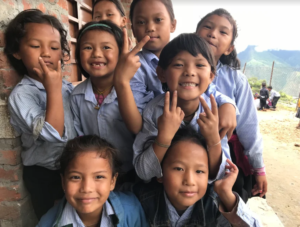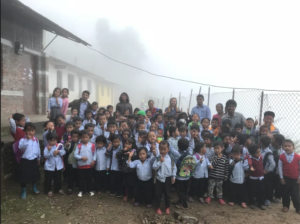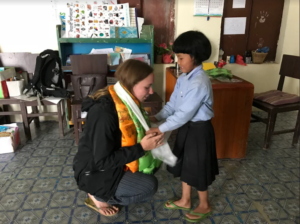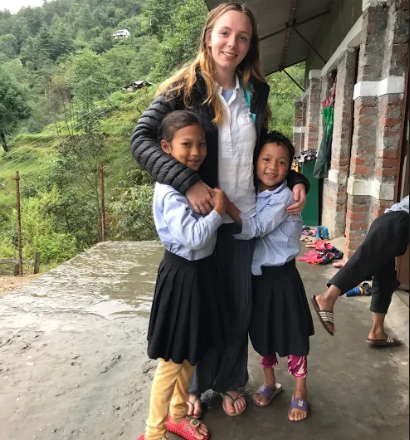Georgia (Nepal)
Overall, the experience was everything I thought it would be. I enjoyed a ‘two-centre’ student placement in Nepal – starting with office work in the capital and then teaching in a remote mountain village.
For the first week, I worked for the charity HELP (Helambu Education and Livelihood Partnership) in their Kathmandu office. HELP delivers many of the programmes on the ground in Nepal for which Mondo Foundation provides funding. During that time I wrote a report on the recent completion of the renovation of a school that had been severely damaged by the earthquake in 2015 and wrote background profiles on every student who had received a scholarship that year for a brochure they were making. I was particularly useful as all their documents had to be in English. I also liaised with other volunteers and helped organise their placements in villages.
For the second part, I went by jeep to my placement in a small village called Miun Gaum, just south of the Chinese border, with two other volunteers. Here I worked as an English teacher in Satkanya Devi Basic School, which only had around 60 students and went up to grade 3. On my first day I shadowed another teacher and learned how the lessons worked, and then that evening I made up some lessons plans and planned what I was going to do with my three weeks teaching.

Overall, I taught from 10:15 to 15:30 with two one-hour breaks. The teachers at my school were very receptive to my presence and were interested in my insights. I focused on two things during my time there. The first was discipline – the kids, as lovely and enthusiastic as they were, did not react well to the rigid classroom atmosphere. They constantly ran out of the classroom and into others and played at the back instead of learning. Most teachers experienced these problems because they had been told not to hit the children and therefore, they didn’t have any respect from them. I introduced a lot of techniques and left some ideas for discipline that did not involve corporal punishment. When we started to implement these, they worked very well and I hope they continue to be used now I’ve left.

My second focus was phonics. I found very quickly that they couldn’t read English – they were merely recognising the shapes of certain words. This meant that they were very far from being able to write. I taught them and the teachers the sounds of the letters and how they work in words. It took just three weeks to teach the oldest kids to read, which was immensely rewarding.

I was fully immersed in the local culture by our host family, truly experienced the Himalayas and met some incredible people and made friends there that I will definitely stay in touch with. I think that the school will take my suggestions on board and I’m certain that my stay there made an impact on the way they teach English.



